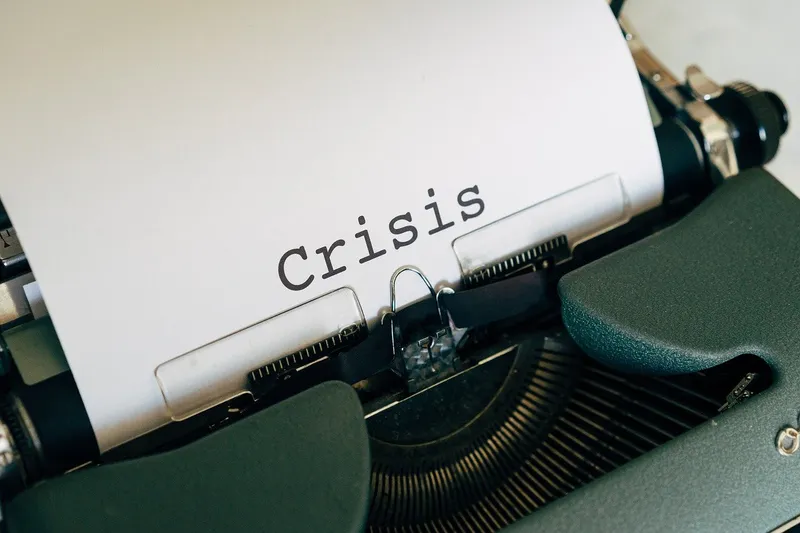Why Inflation Affects Your Credit Score
Posted on 05 August, 2022 by MIRANDA BOTTAS in Finance

Why Rising Prices are Causing Falling Numbers on Millions of Credit Profiles
Across the country, consumers are facing increasing pressure from rising prices. Nearly everything costs more than what we're used to, from the gas pumps to the grocery stores and more. Renters are paying more, utility bills are higher, and the cost of many everyday items has risen roughly 10% in the past 12 months. There is no solid sign of this coming to a quick end any time soon.
The most heavily impacted by the economy's inflation are younger people & those with lower income. Many individuals and families in these categories are living paycheck to paycheck. They also tend to have lower credit scores, whether it's due to a lack of credit history or a negative one.
As they fall behind on bill payments and struggle to make ends meet, they rely on using credit cards more. This is true for many who aren't financially stable, and also for many who are. When you have to spend more money to purchase everyday items, your credit card debt is more likely to increase than it is to decrease. This is the basis for why inflation affects your credit score.
Making On-Time Payments is a Challenge During Inflation
Additionally, variable credit card interest rates (or any non-fixed-interest loan) are increasing as the Fed raises rates as a means to fight growing inflation. In other words, even efforts to fix inflation at the source literally end up creating negative consequences for many credit card users; their balances are now rising faster than usual.
When you're already spending more on your cards to begin with and then get hit with higher interest rates, it'll be more difficult to keep your balances at a reasonable level, especially if you are a low-income borrower. Combine that with the fact that other debts are also due and it's easy to see how you'd quickly have a serious burden staying afloat and current on even the most basic payments. It's a recipe for disaster in terms of credit scoring, and for some it's impossible to avoid.
VantageScore found that many people with credit scores below 660 are struggling to pay auto loans & credit card payments on time without the financial cushion provided during the pandemic. Unfortunately, those late payments account for a whopping 35% of their credit scores and can be extremely harmful to a healthy credit report.
As card balances increase to without the means to pay them down, people everywhere are noticing the impacts of inflation on their credit scores. If you're one of them, this article will help you see why inflation affects your credit score and what you can do about it.
Credit Utilization Increases During Inflation Periods
The use of your credit lines account for 30% of your total credit score. It's the second most significant factor after on-time payments. Since most experts recommend keeping your credit utilization below 30%, it's safe to say that not many are able to do so during these times - especially if they couldn't do it before.
One might assume these credit woes would have spiked during the pandemic since many were out of work, and for some this was true. However, the majority of people were actually paying down debt because of stimulus payments and the various forms of emergency financial assistance available. When the paycheck-to-paycheck crowd had some extra support it made keeping credit utilization below 30% more comfortable and realistic. It also accounted for some of the best average credit scores in the country as the influx of extra cash helped individuals reduce their old debt rise up in the ranks on their credit report. In fact, as a result of financial aid & reduced consumer spending over market fears and general uncertainty, the average FICO score hit a record high of 710 in 2020. Quite the opposite of what you might expect during a global pandemic.
In contrast, let's fast-forward to today with the absence of stimulus payments and the all-around increase in prices. That record FICO score of 2020 is nowhere to be seen, and a large percentage of the population are continually relying on credit for the purchase of everyday items. In the second quarter of 2022 alone, credit card balances rose 13%, the most considerable year-over-year rise in 20 years.

If you're finding yourself using your credit card more, you should know that you're not alone. But be aware that you may see some negative effects on your credit score. Interest rates could continue to rise, which increase your minimum payments and drive you further into debt while increasing the chances that at some point you won't be able to make your minimum payments on time.
Another factor as to why inflation affects your credit score is because many low-income cardholders are now heavily using credit cards which they originally obtained for emergencies only. Thanks (but no thanks) to rising food prices, a simple trip to buy groceries feels like a true emergency for anyone with a low income or delinquint bills. You very well may be in that situation while reading this and know that stressful feeling of having to use a credit card for something you truly don't want to use it for. Suddenly, what was intended for emergency car repairs or an unexpected personal expense is being used for basic survival. Of course, basic survival is seriously important... but it's not quite what you had in mind when you set that card aside, reserved for emergency use only.
Again, inflation leads to increased credit card usage and, consequently, higher overall credit utilization. Throw in rising interest rates and the generally higher costs of everything, and this chain of events really does make an impact over your ability to maintain a healthy credit profile.
Establishing New Credit is a Pipe Dream for the Credit Invisible
Another downside of inflation is how it affect people with low credit history. They have to be extremely frugal and careful to not dip into their credit accounts & worsen their financial situations. This is extremely difficult and frustrating. Many can't manage that situation very well.
But what about people who don't have credit histories at all? People with credit can choose when to make their purchases. When inflation threatens to raise the prices of particular items, those with access to credit lines can decide to utilize credit in an attempt to keep food on the table and a roof over their head. Many are doing exactly that at this very moment. However, if you've never had a credit card or loan, aren't able to get one due to low income, or haven't had credit for a while, that essentially makes you "credit invisible." And when lenders can't retrieve the information they need to determine if you're creditworthy they definitely won't want to extend a line of credit to you. That means you'll be facing a very rough time with any attempts at acquiring new credit or any type of traditional loan.
Most often, the people who are credit invisible are low-income individuals. A 2015 Consumer Financial Protection Bureau study found that approximately 26 million Americans have no credit histories. Low income was the most significant predictor of credit invisibility. About 30% of people in lower-income neighborhoods were credit invisible, and another 15% had unscorable reports.
As you can clearly see, inflation not only affects your credit score but it really pins low-income individuals between a rock and a hard place. They don't have the freedom to choose when to make a purchase. Instead, they must save until they can afford something, even as they watch the price rise. Others may reach the point where they take on more predatory loan options such as vehicle title-loans, or ultra-high interest options that while allowing them some room to breath will ultimately lead to a worsening credit score down the road.
Without credit, it's hard to take steps to improve your income & quality of life. The situation of low income coupled with inflation makes establishing strong credit (or any credit at all) a pipe dream for tens of millions of Americans.
Small Steps to Combat Inflation's Impact on Your Credit Score
Inflation damages your credit score because it impairs your ability to make payments on time & keep your credit utilization down. Or, if you are working to establish credit, inflation makes it more challenging because it's harder to pay rent, make utility payments on time, and buy household necessities. (And as already mentioned, it's just not a great time to use credit because of unpredicatable interest rates.)
If you want to combat the pressure of inflation on your credit score, what small steps can you take? Here are a few things you can do right now that will move the needle in a positive direction, even if it's just a little at a time.
Pay less interest on your credit cards
Slow down the interest on those credit cards. If you're paying less interest, your balances aren't going to increase as quickly.
- Ask your bank or credit card company to lower your rates; when people ask, the majority receive an average of 7 percentage points knocked off their interest rates.
- Transfer your balances to a new card with a 0% introductory rate. Such a transfer can stop the interest accrual while you pay down some of that debt.
- Just say no to new high-interest credit cards. You don't need them in your wallet, tempting you when inflation is high!
Avoid late fees & delinquent marks with auto payments
Paying on time is the best way to keep a healthy credit score. These tips will help you avoid late fees & delinquent remarks.
- Set up auto payments to ensure that you're always on time. Making payments late is the worst thing you can do for your credit!
- Those "delinquent" marks enjoy hanging on to your credit report for a little while, so set a reminder to make your payment if you don't have auto-pay turned on.
- Late fees usually cost $30-40, and there's no reason to pay them if you don't have to!
Find small ways to raise your credit score
Although inflation can negatively impact your score, it doesn't have to! These small actions can make a huge difference in balancing out the effects of inflation on your finances.
- If you have a little extra money, put it toward those credit balances to pay them down as quickly as possible.
- Increase your credit limit by asking the holders of your current cards to increase the limits on those cards.
- Check your credit report for errors & dispute them so they'll no longer count against you.
- Consider purchasing credit tradelines that can help you boost your credit by increasing your available credit & enhancing your payment history.
With a bit of knowledge & willpower, you can take action today to offset the impacts of how and why inflation affects your credit score. Need assistance? We're here to help you make the right decisions and decide if authorized user tradelines might be helpful for you and your situation.

PREVIOUS ARTICLE
How Much Do Authorized User Tradelines Really Cost?
NEXT ARTICLE
Leveraging Tradelines When You're New To Credit
